Cocos Island - The NEW Seventh Wonder?
Who knew they had "blog monitors" out there but thankfully, there are and this is the response I got from the post on Cocos Island from Sonia at the Costa Rica Tourist Board in Miami: "You may not know, but the island serves as a natural laboratory for the observation of marine evolution and it is also ground zero for sharks as they are facing extinction. Cocos has become one of the last few places on Earth where they are safe. Presently, they are facing danger there due to illegal fishing and shark finning taking place due to the demand in the Asian market for shark fin soup. Approximately 100 million sharks are killed every year for this senseless act and the Earths rapid depletion of fish is forcing the Taiwanese, in particular, into the waters of Cocos in order to meet their demand. So far, they have managed to wipe out shark populations in the Galapagos and now they are targeting Cocos."
The following is Sonia's attachment sent to me that should be worth your interest:
Virtual site on Second Life kicks off series of projects in 2009 by the Costa Rica Tourist Board to raise awareness of the current threats to the island’s ecosystem and position it to be recognized as one of the Seven Wonders of Nature.
See http://www.microsites.visitcostarica.com/
SAN JOSE, Costa Rica – February 5, 2009 – Cocos Island, an unmatched, uninhabited rain forest oasis in the Pacific Ocean and New Natural 7 Wonders of Nature nominee for Costa Rica, will premiere in the virtual world of Second Life® (SL) as the first replicated island built on the site. The launch, taking place February 7, 2009, will be the first in a series of initiatives sponsored by the Costa Rica Tourist Board (ICT) designed to raise awareness about the island and the ecological significance to the island’s marine conservation.
The Cocos Island replica on SL was built with the support of the Friends of Cocos Island Foundation (FAICO) www.cocosisland.org with never before seen SL technology, allowing users to experience the island’s elements and learn more about its ecological significance. The site will introduce users to the wonders of Cocos Island through the most extensive marine world ever built on the site, which includes schools of sharks, an array of fish, spotted eagle rays and coral reefs, among others.
“As we live in a more globalized era, we continue to look for ways to use these digital tools as a way of raising awareness of the issues that affect us all at an international level,” says Maria Amalia Revelo, Marketing Director for the ICT. “Over the past 30 years Costa Rica has dedicated itself to preserving its land and we are now looking beyond our borders and into the ocean. Through our virtual creation of Cocos Island we hope to be able to bring its beauty to the rest of the world and create a consciousness of the threats which the ocean and the rest of the world faces,” she says.
Designed to be a reality meets fantasy adventure, users can visit a replica of the island’s park ranger station and can get information about the Foundation and the environmental issues they as well as cast a vote for Cocos Island to be one of the New Natural 7 Wonders of the World at www.new7wonders.com. As the user explores the island they will be surrounded by the nearly unscathed environment of Cocos, filled with flora and endemic wildlife such as the Espiritu Santo birds and the Cocos Island cuckoo. Specially designed paths will guide visitors through the island’s main attractions including the island’s replicated coconut bridge, breathtaking waterfalls, and a secret cave.
Other adventures on the island include scuba gear and submarine rentals, which allow the user to explore its rich marine life, alone or with friends. The site will also include weekly parties with live music from special SL artists who will provide information about the island and the Seven Wonders of Nature. Additionally, the island will continually be expanded to represent unique marine species that will call this haven their home.
Cocos Island as a global sanctuary for marine life and the threats the island faces from issues such as illegal fishing and shark fining. Due to Costa Rica’s aggressive environmental program over the past 30 years, Cocos is one of the most bio diverse places on Earth for marine life. The end result of these conservation efforts have also brought on a significant increase in the presence of poachers around the island and risking the lives and existence of its inhabitants.
One of the most spectacular features of Cocos is the presence of hundreds of sharks around the island and its reefs. Today, it is considered to be ground zero for the Earth’s shark population. Unfortunately, the growing demand for shark fin soup in the East has forced these apex predators towards extinction, which would symbolize the collapse of an already frail ecosystem. It is estimated that a staggering 100 million sharks are killed each year by shark finners and fisherman in order to meet this social demand. This makes humans the number one threat to sharks and the ocean at large.
Referred to as "the most beautiful island in the world" by oceanographer Jacques Cousteau, this small uninhabited piece of land of volcanic origin and home to more than 1,000 species of flora and fauna, is the dream destination of any marine biologist, scuba diver or human being that appreciates nature’s magnificence. Other unique features of the island include lush vegetation, beautiful waterfalls, colonies of migratory birds and astonishing scenery. Due to its diverse ecosystems and micro climates, the island provides numerous ecological niches, which allows for a high level of endemism and plays an important role in the evolution of species. More than one thousand species have been identified on the island, including plants, insects, reptiles, spiders, birds, crustaceans, mollusks, fishes and corals.
The island’s role in scientific research on evolution and ecosystems is, and should continue to be, of great value to humanity, making its conservation is crucial, There are protection programs created by the government and implemented by the island’s park rangers as well as the support of the non-profit and independent organization FAICO, which was created to oversee the island’s management and to procure its preservation.
Cocos Island, aside from being a complete paradise and an ecological laboratory, has received global recognition for its ability to sustain its ecological environment intact for the rest of the world to enjoy. Last year, Cocos Island celebrated its 10th Anniversary as an official UNESCO World Heritage Site. Additionally, in 1999, it was included in the list of Ramsar’s Wetlands of International Importance. Signed in Ramsar, Iran, in 1971, the list is an intergovernmental treaty which provides the framework for national action and international cooperation for the conservation and wise use of wetlands and their resources.
About Costa Rica
Costa Rica is located in Central America, nestled between Nicaragua and Panama, and bordered on the east by the Caribbean Sea and the west by the Pacific Ocean. This small country represents only .01 % of the planet’s surface and it shelters almost 4% of the existing world’s biodiversity. It has given priority to the conservation of its natural resources, protecting 26% of its national territory through the creation of National Parks and other natural areas. The country also offers world-class eco-tourism and adventure travel. The options are unlimited for any discriminating traveler: horseback riding on a secluded beach; hiking through the lush whispering greenery of a rain forest; having an exhilarating experience on a white-water rafting trip, observing the tropical forests from a canopy tour; surfing the blue waves of either coast; experiencing a quite, close encounter with different species of birds and wildlife; and enjoying the diverse culture and hospitality of the Ticos.
About the Costa Rica Tourist Board
The Costa Rica Tourist Board, created in 1955, is an autonomous institution of the State, responsible for regulating the tourism activity in Costa Rica and promoting Costa Rica’s tourism attractions and destinations both at a national and international level. The Costa Rica Tourist Board creates tourism norms, regulations, incentives and grants the tourist declaratory for Costa Rica’s hotels, travel agencies, rental cars and other tourism organization and service provider. For general travel or tourism information about Costa Rica, contact the Costa Rica Tourist Board directly at 1-866-267-8274 or visit their web site at www.visitcostarica.com.
Thank you Sonia, for providing us with the above information.
TO CHECK OUT THE NEW 7 WONDERS LIST: http://www.new7wonders.com/
That is all very lovely but what concerns me most about Cocos Island is the shark finning that continues. With Costa Rica being so chummy with China and accepting ALL THAT MONEY from them AND Costa Rica permitting the Chinese workers to build their stadium (when Ticos need the work), will Costa Rica turn it's head when it comes to the killing of our sharks for their valuable fins? What about the off-shore drilling China wants for the future of Costa Rica?...
I plan to do a post on "The New Face of Costa Rica" soon. It's changing.
I hope Cocos Island gets the attention it needs to protect it but once it is truly discovered by all, it will never be the same. I hope we can protect our little known sanctuary.
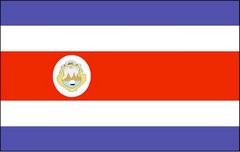







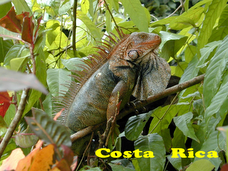
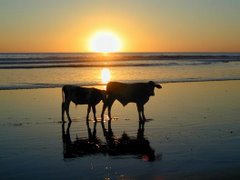
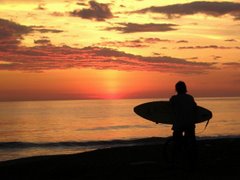
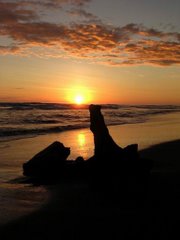
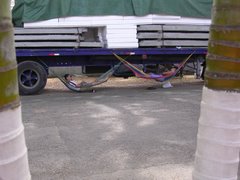


2 comments:
Thank you Teri for you wnderful input, a real treat reading you here in Slovenia.
I recently saw a programme on shark finning with a Chinese 'investor' sitting in his office with the map of Costa Rica on his wall. In his temperature controlled warehouse there were 8 million shark fins, all clean and ready to be taken to markets! I used to cry watching romantic films but crying over sensless killing of this kind is something else!
How on Earth do we stop it ?
Thanks for your comment. It requires raising the awareness of others and changing customs. I hate to see animals abused and it's a common occurance since us humans are meat eaters. The handling of animals for consumption is horrible. If we only could see the process to market, we'd all be vegetarians. It's not just the sharks, it's many other species as well.
Humans should be the PROCTECTORS of our great planet. We are failing miserable.
Maybe attention focused on Cocos Island will cause the shark slayers to go away.
Thanks again for shedding light on the subject from your perspective. Teri
see: http://www.meat.org/
Post a Comment